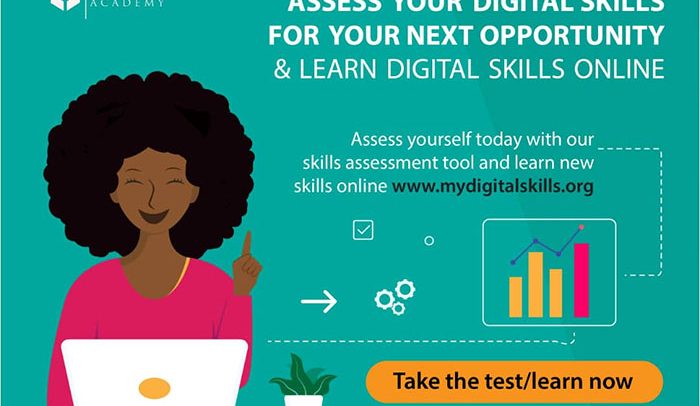Software development and social enterprise, Soronko Academy, in partnership with Mastercard Foundation, has launched a skills assessment tool for digital jobs.
The ‘My Digital Skills,’ tool seeks to test for technical and soft skills to help prepare young women for the job market.
The initiative forms part of the Young Africa Works Strategy by the Mastercard Foundation which focuses on finding solutions to the youth employment challenge and reducing poverty in Africa.
It will ensure that economically disadvantaged young women (aged 18-35) in Ghana have the opportunity to assess their skills in order to either seek further training or to be matched with appropriate jobs.
The skills assessment tool again, will ensure that employers are matched with candidates who have the exact skills required for the role.
Launched at a critical time, this platform also includes a COVID-19 assessment test, aimed at providing users with more information about the disease, including best practice measures such as social distancing and handwashing.
The platform also ensures that users are informed about treatment methods and centers across the country.
In introducing the tool and emphasizing its importance, Soronko Academy Founder, Regina Honu, stated, “Skills assessment and empowerment for women in ICT in Ghana is very important to us here at Soronko Academy.
The female labour force participation rate in Ghana is estimated at 74.77%, and women account for about 49.1% of the entire population of Ghana.
However, there is a disparity in women’s participation within the labour market compared to men, with most economically active women operating within the informal sector.
This is why tools and initiatives like this within the ICT sector are so important, to not only close the digital gender gap but to also ensure women are equipped with the right skills that will allow them to thrive and be competitive.
We are proud to partner with the Mastercard Foundation and contribute to their goal of enabling 30 million young people to secure dignified and fulfilling work by 2030.”
By Jamila Akweley Okertchiri


